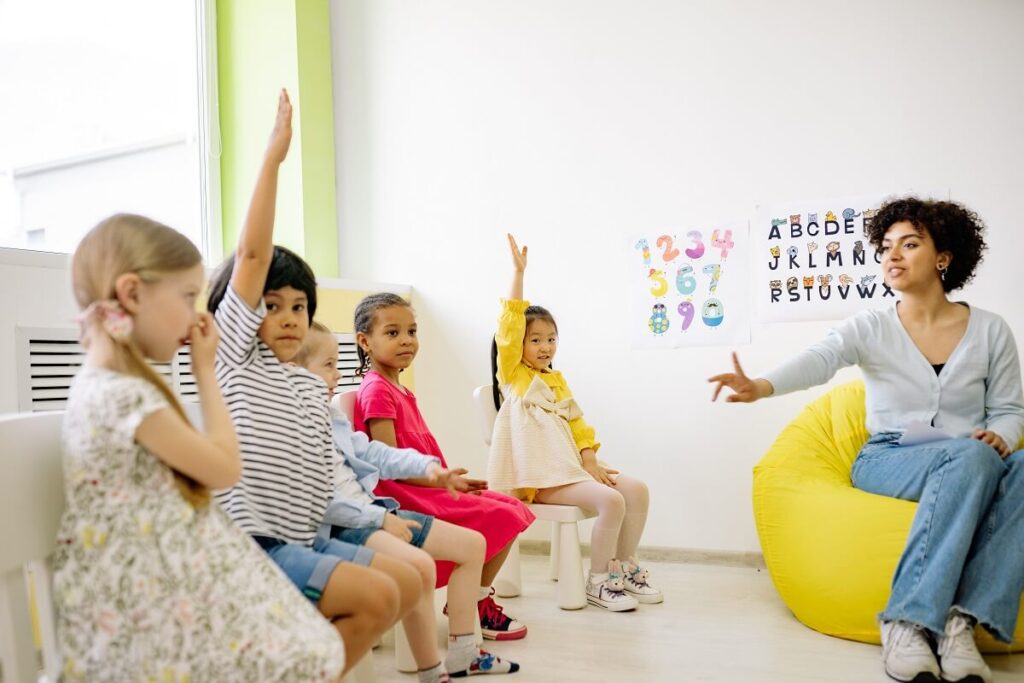
If you’re like most people, you may not think that “well-behaved” and “preschooler” belong in the same sentence. But the truth is that preschool children are more than capable of learning basic social etiquette.
Of course, this doesn’t mean your three-year-old will know every rule outlined in Emily Post’s etiquette books. But it does mean they will be well on their way to polite, positive social interactions with adults and children alike. Here’s how your child’s education in etiquette can begin in preschool.
Greeting Teachers and Classmates
As an adult, you may not be able to remember a time when you didn’t know how to greet someone. But for preschoolers, this is a skill that needs to be taught.
At a Montessori preschool, children learn that greetings are a sign of respect. They learn to maintain eye contact and say “hello” when someone new enters a room. With a little practice, these skills become second nature.
Sharing and Taking Turns
One of the most important parts of a Montessori preschool is learning how to foster a spirit of community, and one of the best ways to do that is to practice sharing and taking turns.
These might sound like minor skills, but sharing and taking turns help cultivate a sense of empathy. For instance, a child might want to keep a coveted toy all to themselves. But when they think about how the other children feel, they realize the kindest thing to do is to let someone else have a turn.
Using Table Manners
The preschool lunch table might not seem like the best place to learn table manners. But with attentive teachers (and some guidance at home, too), preschool children can learn how to be polite when eating.
They may periodically need to be reminded to chew with their mouths closed and keep their elbows off the table, but in time, they’ll internalize that guidance.
Preschoolers often need to be taught that certain subjects should not be talked about while eating. Many young children like to talk about gross topics at lunch, but they can learn that those topics are better left for the playground!
Healthily Expressing Anger
For preschoolers, emotional regulation can be a real challenge. Some children will resort to hitting or otherwise attacking another child in moments of frustration or anger.
With patience and guidance, preschool children can learn to use words to express their emotions. Parents and teachers can talk children through outbursts, acknowledging that they understand feelings of anger. They can then help the child develop strategies for improved communication and emotional expression.
Behaving in Public Places
Field trips do more than just let kids see new places — they also help them learn how to behave in public venues. For a preschooler, it isn’t always obvious that they should behave differently at a zoo or in a museum than they would on a playground.
This is a skill that can be cultivated at home, too. Young children can practice good behavior even on short trips to the grocery store and other quick outings.
Holistic Education for a Brighter Future
At Flagstaff Montessori, we believe your child’s education should be about more than academics. By focusing on the whole child, we strive to help shape the thoughtful and compassionate adults of tomorrow.
Want to see what a Montessori preschool can do for your child? Contact us today with any questions or to get started with registration.
